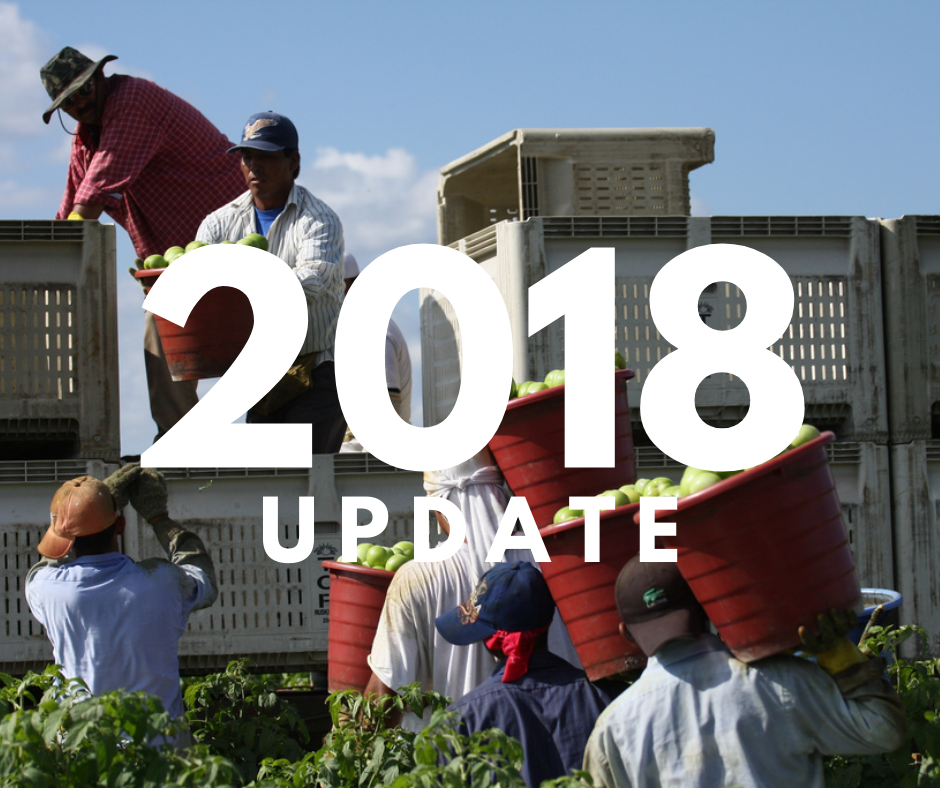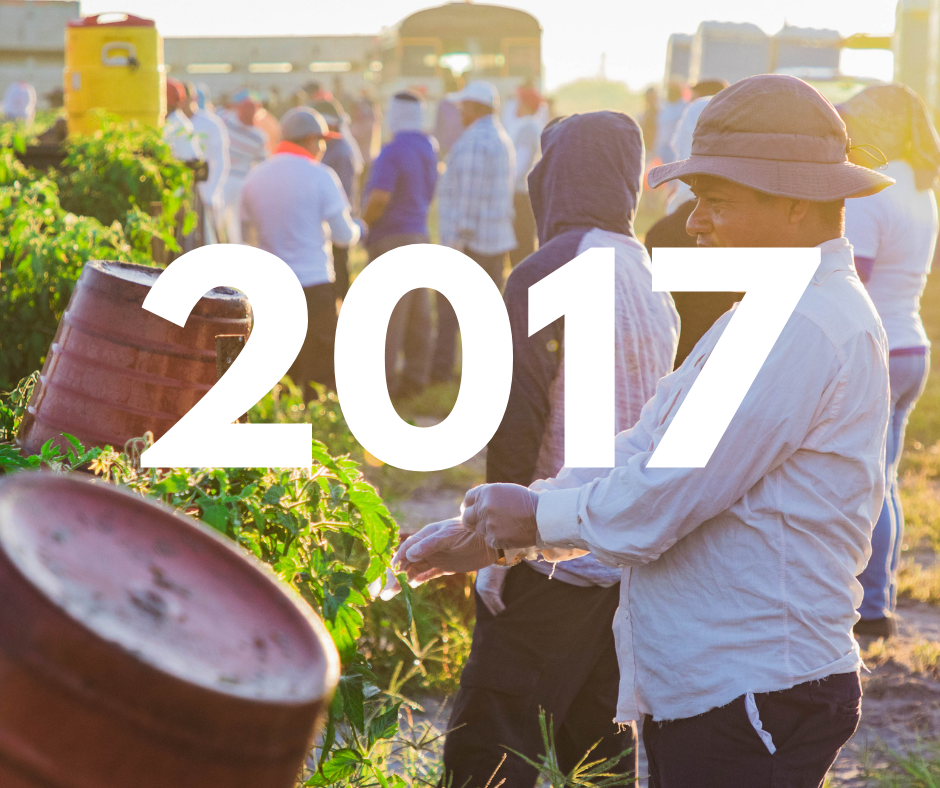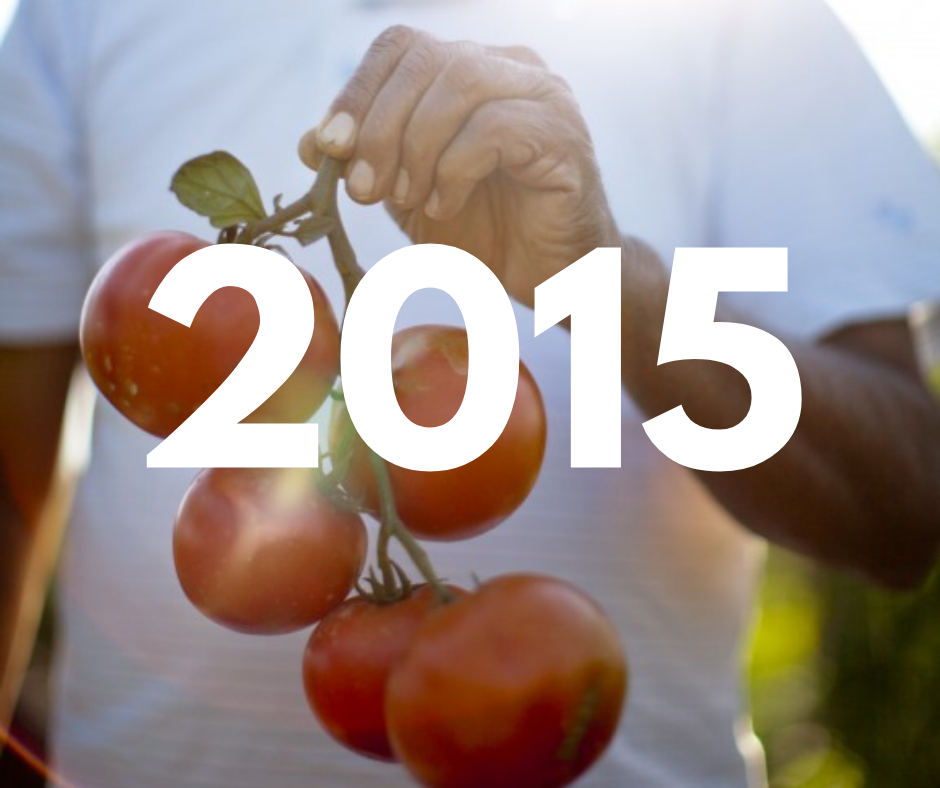Results
2021 STATE OF THE PROGRAM REPORT
Covering Seasons 8 and 9
This report provides in-depth data from Seasons 8 and 9, and an overall update on the state of the Program as it reaches its 10 year anniversary, plus three special “in focus” sections cover the Program’s response to COVID-19, sexual harassment, and expansion of the Program into new states and crops. The report includes updates about the Program’s new heat stress illness prevention policy, and the growth of the Worker-driven Social Responsibility model, including a new partnership with the Hollywood Commission.
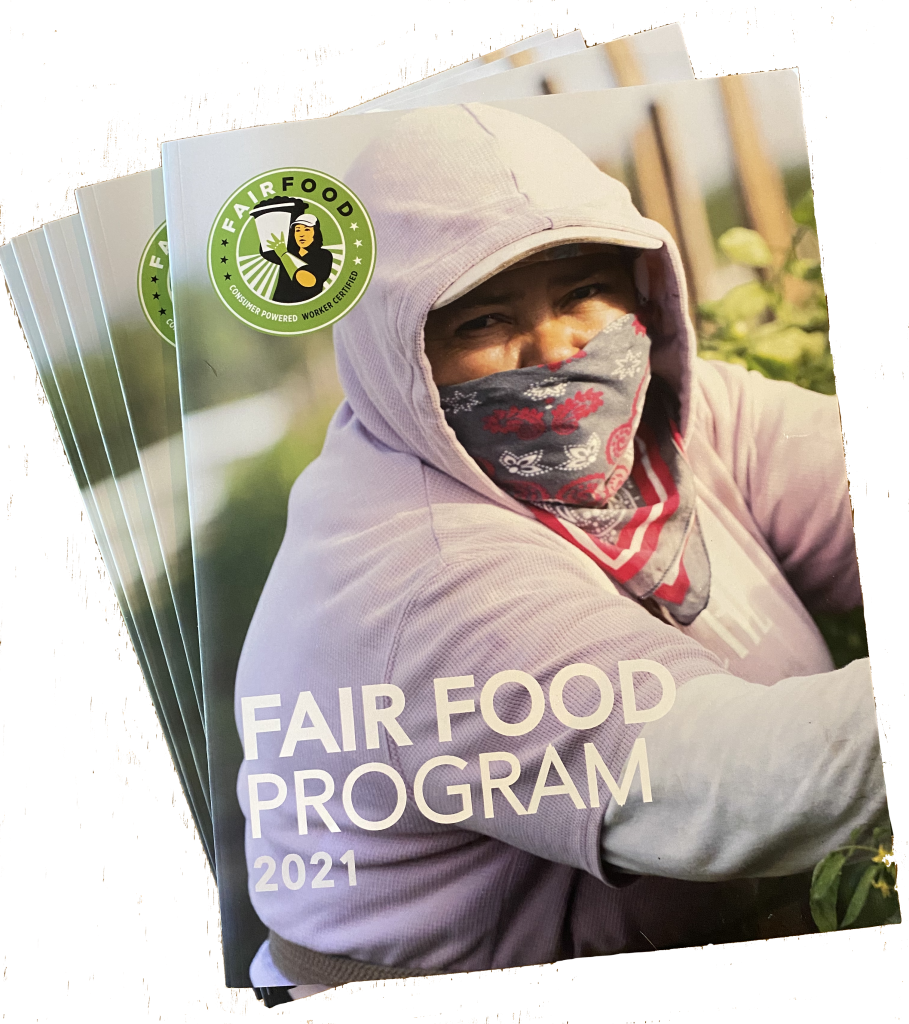
IMPACT BY THE NUMBERS
Since the Program began in 2011:
Department of Labor cases,
or EEOC cases
THE FAIR FOOD PROGRAM DIFFERENCE
On Fair Food Program farms, workers:
- Work free of forced labor, human trafficking, child labor, sexual assault, and violence.
- Make complaints without the fear of losing their job — or worse.
- Harvest according to the new visual bucket-filling standard, and so receive pay for all the pounds of produce they pick.
- Clock in and out on time clocks, controlling their own time cards, and so record and receive pay for all the hours they work.
- Receive Fair Food Premium in their paychecks.
- Work in an environment where sexual harassment, discrimination, and verbal abuse are not tolerated.
- Participate in Worker Health and Safety Committees.
- Do not work in dangerous conditions that most other farmworkers in the U.S. take for granted, including toxic pesticide exposure and lightning.
- Have access to shade, clean drinking water, and bathrooms as needed.
- Live in safe and secure housing where charges do not reduce wages below minimum wage.
- Are protected by the only mandatory, privately enforced COVID-19 regulations in the U.S. agricultural industry
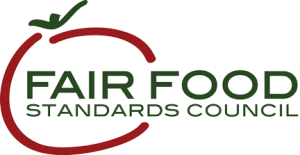
The Fair Food Standards Council is the independent monitoring and auditing body that oversees the implementation of the Fair Food Program
With an organization dedicated solely to the implementation of the Program, the FFP produces transparent, measurable results, clearly laying out what the Fair Food Program covers, how Participating Growers have performed, and the Program’s overall impact. This rigor ensures that consumers and buyers can understand exactly what the Fair Food Program label means and how it directly improves the lives of farmworkers.
Download Previous “State of the Program” Reports
Click through to read reports from previous seasons. For a full archive of reports, please visit the Fair Food Standards Council site.
Academic and Institutional Citations for the Fair Food Program and Worker-driven Social Responsibility
- "Worker-Driven Social Responsibility: A New, Proven Model for Defining, Claiming, and Protecting Workers’ Human Rights" by the Center for Labor and a Just Economy at Harvard Law School, 2023
- “Not Fit-for-Purpose: The Grand Experiment of Multi-Stakeholder Initiatives in Corporate Accountability, Human Rights and Global Governance” by The Institute for Multi-Stakeholder Initiative Integrity, 2020.
- United Nations Working Group on Human Rights, “Guiding Principles on Business and Human Rights at 10: Taking stock of the first decade,” 2021: “[W]orker-driven social responsibility initiatives, such as the Coalition of Immokalee Workers’ Fair Food Program, demonstrate the benefits of developing site-level grievance mechanisms and that their usual shortfalls can be avoided by giving workers a leading role in shaping and monitoring these mechanisms.”
- International Food Policy Research Institute (IFPRI): "To achieve the SDGs, workers must define the true cost of labor in food systems," 2021.
- "The True Cost of Labor Must be Worker Defined," Nature Food, 2021
- Yale, Stanford, Sheffield University Re:Structure Lab: "Forced Labour Evidence Brief: Due Diligence and Transparency Legislation.” [Worker-driven Social Responsibility programs as most promising model mentioned throughout], 2021
- Oxfam Great Britain: "Working in Marks & Spencer’s food and footwear supply chains” [Fair Food Program mentioned as a “signpost for good practice" on p. 16], 2021
- “The Human Rights Opportunity: 15 real-life cases of how business is contributing to the Sustainable Development Goals by putting people first” by Shift, 2018.
- “Preventing Forced Labor in Corporate Supply Chains: The Fair Food Program and Worker-driven Social Responsibility” by Greg Asbed and Steve Hitov in Wake Forest Law Review, 2017.
- “Decent Labour Standards in Corporate Supply Chains: The Immokalee Workers Model” by James J. Brudney. In Temporary Labour Migration in the Global Era: The Regulatory Challenges, Hart Publishing, 2016.
- “Justice in the Fields: A Report on the Role of Farmworker Justice Certification and an Evaluation of the Effectiveness of Seven Labels” by Fair World Project, 2016.
